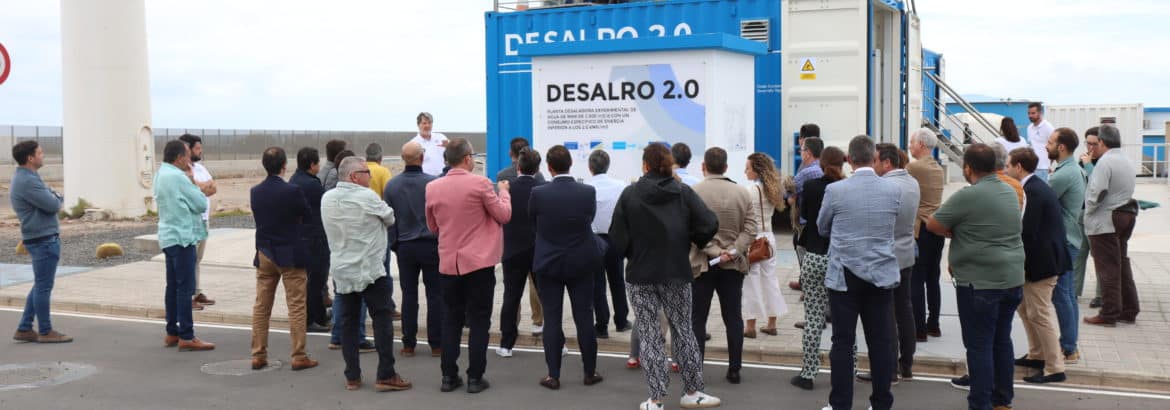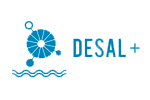The Government of the Canary Islands, through the Canary Islands Institute of Technology (ITC), has unveiled the results of the DESALRO 2.0 seawater desalination platform. This project has achieved the highest energy efficiency in seawater desalination by reverse osmosis until now, positioning the Canary Islands as a leader in innovation and a technology exporter.
The presentation of the experimental plant, including designs from 2,500 to 5,000 m3/d, located in the DESAL+ LIVING LAB area at the ITC facilities in Pozo Izquierdo, Gran Canaria, was attended by 104 attendees, including the President of the Government of the Canary Islands, Fernando Clavijo, who highlighted the progress of the islands in seeking sustainable solutions to ensure water supply: “This technology allows us to produce water with the lowest energy consumption in the market,” he stated.
He also acknowledged the ITC for leading a project that generates research and innovation developed in the Canary Islands. The DESALRO 2.0 designs have exceeded all expectations since its commissioning in December 2023, achieving an energy consumption of 1,861 kWh/m3, which is up to 25% less than conventional designs. DESALRO 2.0 has demonstrated at real conditions (2,500 m3/d), its optimal performance and capacity to be replicated on a larger scale.
Other prominent authorities also attended the event. The Regional Minister of Universities, Science, and Innovation of the Government of the Canary Islands, Migdalia Machín, emphasized the importance of R&D&I in the industrial desalination process to advance sustainability. The Regional Minister of Territorial Policy, Territorial Cohesion, and Water, Manuel Miranda, was also present, highlighting the need for a renewal plan for regional desalination infrastructures and their adaptation to the use of renewable energies.
The event began with an overview of desalination infrastructures in the Canary Islands by Juan Antonio León Robaina, Head of Installations and Industrial Equipment of the Directorate General of Waters of the Government of the Canary Islands. It continued with a presentation on optimizing energy efficiency in desalination by Baltasar Peñate Suárez, Head of the Water Department of the ITC. Additionally, Juan Carlos González Bauzá, CEO of Elmasa, intervened to detail the key elements of the DESALRO 2.0 design, executed at the 2,500 m3/d capacity by the Canaragua-Elmasa joint venture.
The DESALRO 2.0 desalination desing stands out not only for its energy efficiency but also for its modular and compact design, facilitating installation and mobility. It integrates advanced technologies such as positive displacement pumps, high-efficiency energy recovery devices, and hybrid reverse osmosis membranes.
This project has been financed as part of the European Union’s response to the COVID-19 pandemic, with funds from the Recovery Assistance for Cohesion and the Territories of Europe (REACT-EU), within the Canary Islands ERDF Operational Program 2014-2020, under the European Recovery Instrument “NEXT GENERATION” (Exp. SD-2111).
In this video (soon also available in English), you can see the development of the project:


